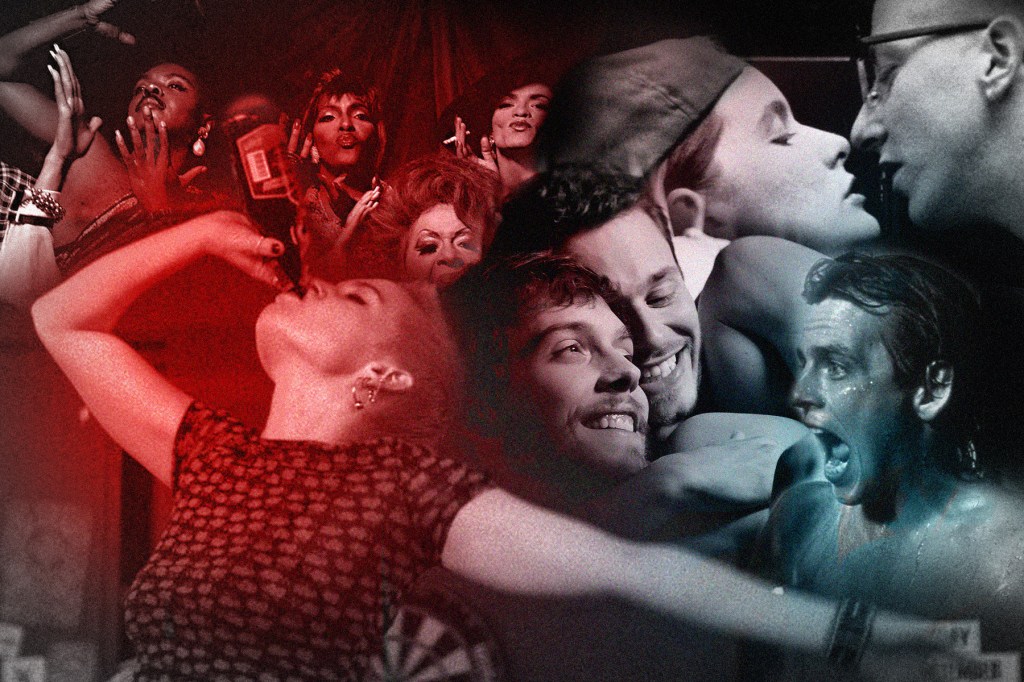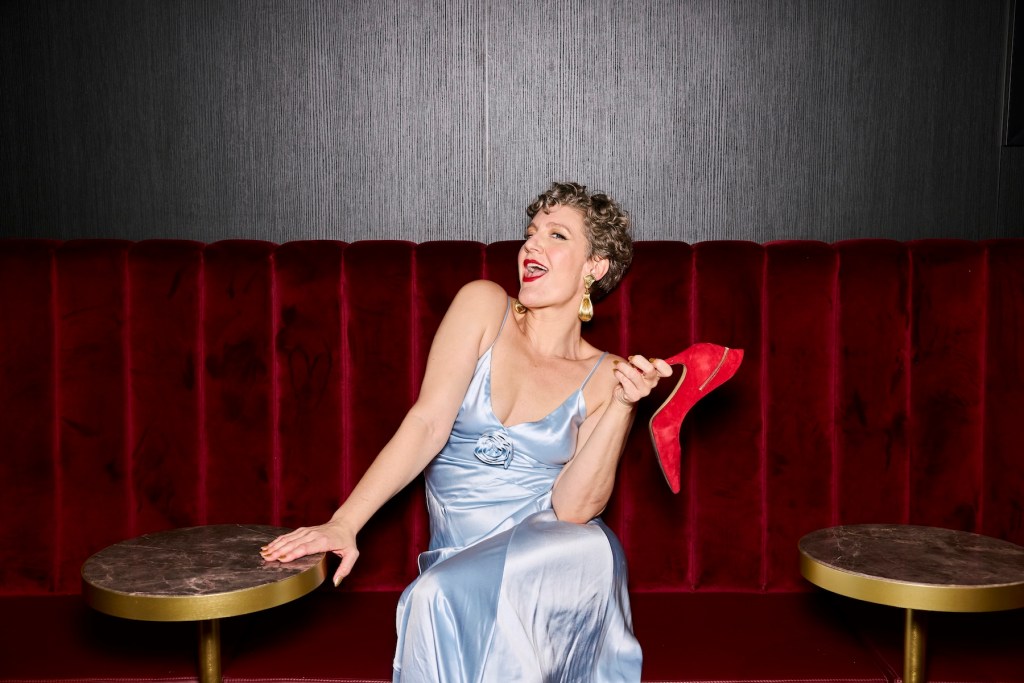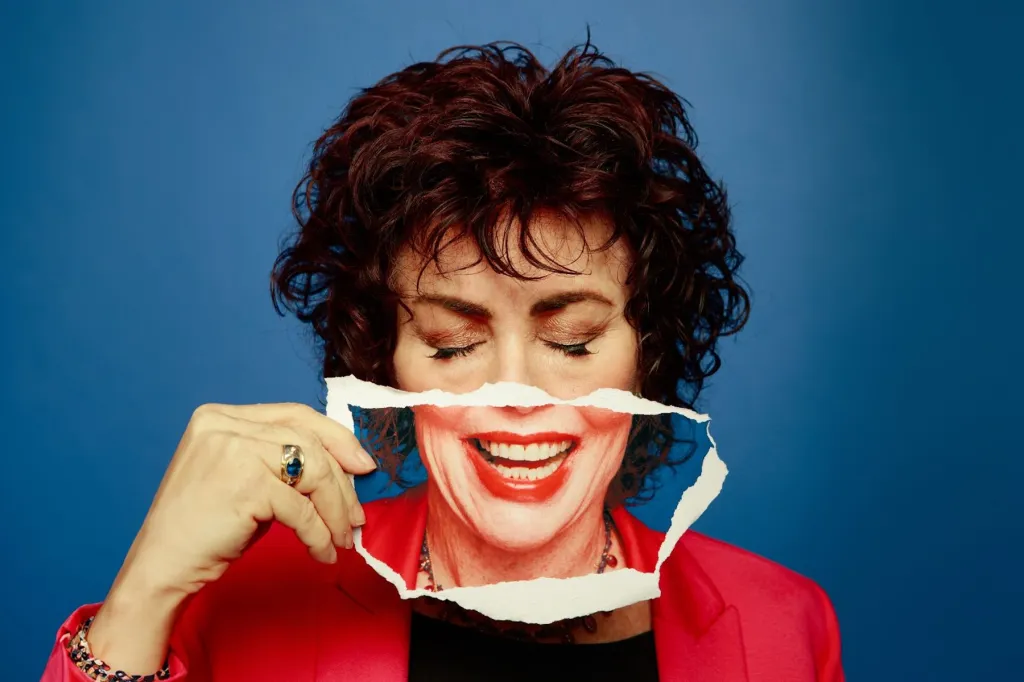Queering the cinema for Adelaide’s Feast Festival
From cult classics such as the lesbian indie rom-com Go Fish and New York ballroom-culture doco Paris is Burning to contemporary movies and a queer horror double feature, this month’s Feast Festival is delivering its biggest film program in years.

Before the feature film Go Fish premiered in cinemas 30 years ago, representations of lesbians on screen were extremely rare. When characters with sapphic tendencies did get air time they tended to be mad or bad (think Franky Doyle and “The Freak” in Prisoner), frustratingly ambiguous (Fried Green Tomatoes), or cursed with an unnatural lust for blood (Vampyros Lesbos, The Hunger, Daughters of Darkness).
Then, in 1994, along comes this black and white indie rom-com from US filmmakers Rose Troche and Guinevere Turner that actually celebrates lesbian life. Centred on a group of friends in Chicago and described as “the story of a woman looking for Ms Right, but going about it all wrong”, Go Fish was low-budget (made for just $15,000), grainy and awkwardly self-conscious, but was enthusiastically embraced by those of us who were desperate to see unashamedly queer characters on screen.
As it celebrates its 30th anniversary, Go Fish will be one of several cult classics being presented alongside contemporary LGBTQIA+ films at this month’s Queer Film Fest, which sees the annual Feast Festival present its biggest film program in more than 15 years.
“Go Fish is a really important lesbian film,” says Stuart Richards, a senior lecturer in screen studies at the University of South Australia, who has co-curated the program with Jess Pacella.
“It was part of the new queer cinema movement, as was Paris is Burning… the early ’90s was when queer directors were making really interesting films that were getting noticed and winning huge awards on the festival circuit.”
Many of these films could be described as avant-garde: “They were experimental and they were more arthouse than people were used to.”
You might like
Paris is Burning, released in 1991, scooped multiple international awards, including Best Documentary at the Sundance Film Festival. In the film, director Jennie Livingston documents New York City’s ball (or ballroom) culture, an underground queer subculture created by members of the Black, Latinx, gay and transgender communities who competed in colourful runway and dancing competitions.
Richards notes that Paris is Burning came out during a difficult time for the LGBTQIA+ community; it was the height of the AIDS crisis, and then US president George HW Bush did not support gay rights.
“It [the film] is really quite a confronting exploration of class, race, gender and sexuality, and how they mix. It also saw a new appreciation for drag culture,” Richards says, adding that many of the terms now familiar to viewers of shows such as RuPaul’s Drag Race – such as “shade” and “voguing” – originated in the Black and Latinx ballroom culture.
The retrospective screening of Paris is Burning at the Piccadilly cinema on November 24 will see it shown on 35mm.
“It was originally made on celluloid so this is almost like the original condition on which it was intended to be exhibited,” explains Richards. “There’s that almost kind of grainy effect you get with celluloid. There is something magical about it.”
Subscribe for updates
While most of the Queer Film Festival screenings will take place from November 22-24 at North Adelaide’s Piccadilly cinema (Feast’s hub in 2024), another classic showing at Palace Nova Eastend Cinemas the Saturday prior is Hedwig and the Angry Inch (2001), which may serve as an appetiser for the live rock musical announced this week as part of the 2025 Adelaide Festival. Movie-goers are encouraged to dress in their best ’70s glam rock outfit for the film, which stars John Cameron Mitchell as Hedwig, a gender-queer rock star from East Germany.
Fast forwarding to 2024, the contemporary features in the festival line-up include Argentinian film Astronaut Lovers, about a man who becomes attracted to his childhood friend when they reunite on a summer holiday, and Brazilian rom-com Perfect Endings, about two young men who end their relationship after 10 years but remain friends, leading to a gamut of emotions as they dive back into the dating world.
Plugging into queer audiences’ appetite for horror films will be a double feature night pairing contemporary Australian horror In the Room Where He Waits with cult classic A Nightmare on Elm Street 2: Freddy’s Revenge (described as “a queer-coded slasher packed with homoerotic undertones”).
The festival will also screen Australian documentary Equal the Contest, made by a non-binary filmmaker whose decision to join a football club in regional Victoria takes a turn when the team has to fight to play in the local AFL women’s league. And the Canadian mockumentary We Forgot to Break Up, based on the novel Heidegger Stairwell by Kayt Burgess, follows the rise to fame of an indie pop band led by a trans frontman caught in a love triangle with his bandmates.
With transphobia still widespread in many places, Richards says it is important that the film industry supports the representation of trans people, “played by trans performers and [with stories] told by trans directors and trans writers”.
LGBTQIA+ representation more generally in film and television has increased exponentially and become much more diverse since Go Fish and Paris is Burning were made – locally made animated film Lesbian Space Princess has just won a key audience award after three sold-out screenings at the Adelaide Film Festival; streaming services are serving up a host of shows that celebrate diversity; and while a queer kiss on screen was once cause for shock or awe, now we can watch pop star Dannii Minogue hosting a BBC same-sex reality series where the entire premise is based around snogging a stranger of the same gender.
Nonetheless, Richards points out, the type of films screened in a queer film festival often get overlooked in the broader festival/film circuit. There is also something special about sitting in a cinema with other members of the queer community watching a queer film together – especially when it comes with a positive storyline.
“To have a queer character exploring joy on screen is really special, and a lot of these films explore that.”
Queer films matter, Richards says, “because for many it’s the first place we see ourselves reflected, and if you’re not queer, it offers a beautiful window into the complexity of our lives”.
Feast Festival runs from November 9-24. The Queer Film Festival line-up – which includes a Queer Film Night at the Capri Theatre on November 12 – and full Feast program is available online.

